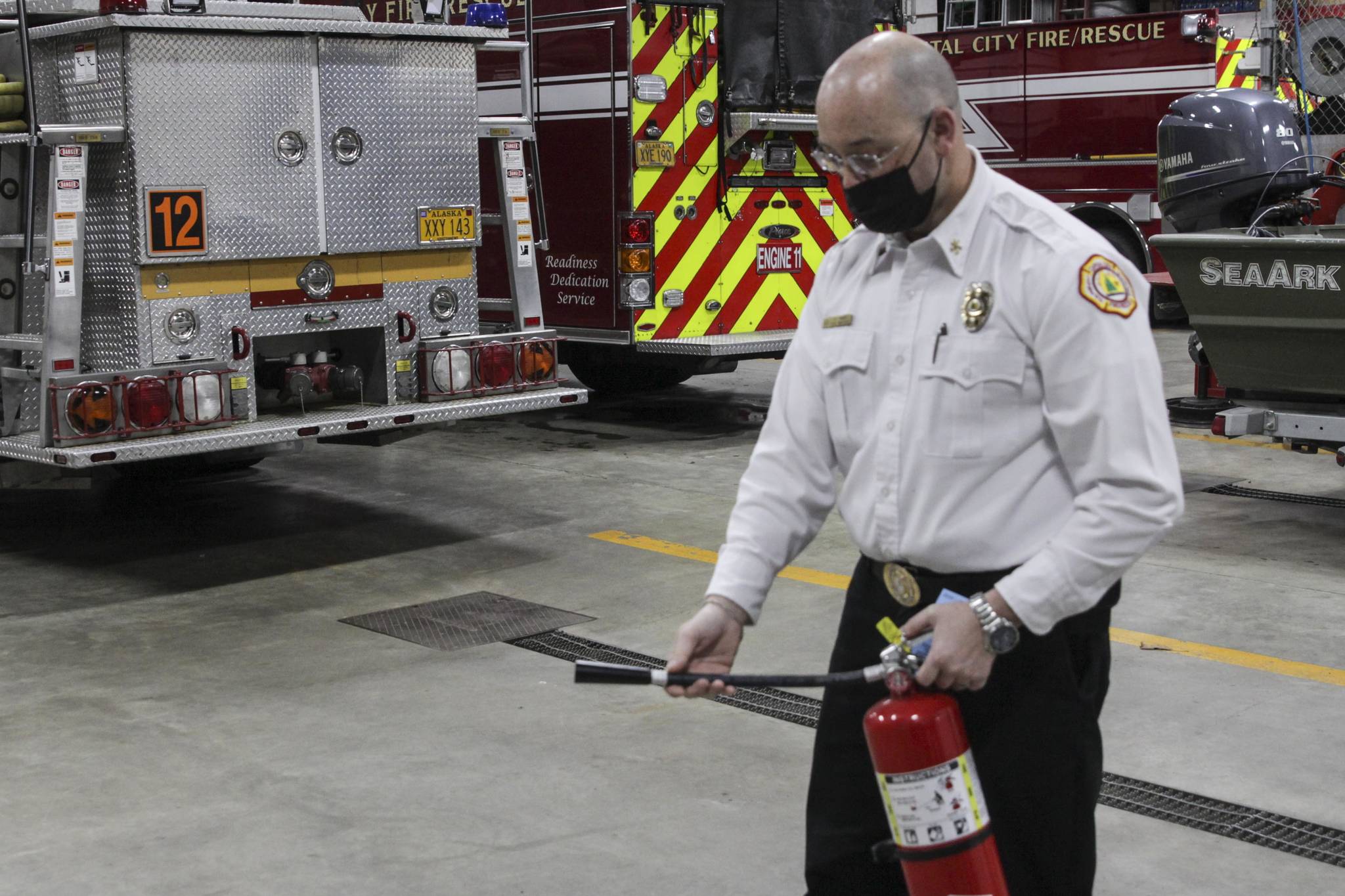As the darkness falls over Alaska, cold seeping into our blood and bone, Capital City Fire/Rescue politely reminds residents to replace their smoke detector batteries this weekend with the end of Daylight Savings Time.
“It’s generally known that it’s during winter when things get fired up. Extended use of the heating systems causes fires,” said CCFR Assistant Chief Ed Quinto in a phone interview. “Fires and fatalities have gone down drastically. When I started, me and Moses, there was a fire every week. Now they’re few and far between.”
According to the National Fire Protection Association, 40% of the house fires that involved deaths in the United States did not have a functioning smoke alarm.
[Clan leader and Tlingit language education pioneer has died]
“Smoke detectors should be replaced every 10 years. They do get worn out. It’s electronic, they can go bad. They have smoke detectors now that have batteries that can last for 10 years,” said Quinto. “It’s actually pretty simple to replace. Every bedroom should have a smoke detector. And everyone should have a fire extinguisher and know how to use them. You should also know how to get out of the house.”
Quinto said he recently replaced all 14 of the smoke alarms in his house, getting them from a local hardware store. Dead batteries were the reason for failure to sound in a quarter of fires where the smoke alarm did not go off. Fire extinguishers and plans to escape the house are also key parts of the homeowner’s defense against immolation.
“We had a fire the other day and they had a fire extinguisher,” Quinto said. “They hit it with a fire extinguisher and they were able to contain part of it until we got there.”
[Firefighters respond to a Friday night fire]
The preponderance of wintertime fires comes from extended use of heating systems which might be clogged up or powered dangerously, Quinto said.
“Everyone’s starting to turn on their heating system. People are firing up their wood stoves,” Quinto said. “People neglect to clean their wood stoves. And people are indoors more.”
A number of fires in Juneau last winter originated from wood stoves. But there are simple steps to clear the chimneys and reduce the risk, Quinto said.
“The fire department does loan out the (chimney cleaning) brushes for free,” Quinto said. “There’s also a company in town that does it.”
While wood stoves aren’t the only thing to watch out for, Quinto said. Electric heaters can be an issue as well.
“It’s the portable ones — especially older ones. If they’re using extension cords with portable heaters, they’re not made to be used with extension cords,” Quinto said. “Common sense with those heaters is don’t plug them into anything but the wall.”
Quinto also cautioned against daisy-chaining extension cords, as attaching several of them together could cause the cords to overheat and become a fire risk. And as the season of big family meals draws near, Quinto cautioned against pouring water on grease fires.
“We had a grease fire a few months ago. They put water on it. Not a good idea,” Quinto said. “Just put a lid on it and it’ll go down. Always keep a lid nearby if you’re cooking with oil.”
• Contact reporter Michael S. Lockett at (757) 621-1197 or mlockett@juneauempire.com.

